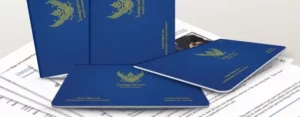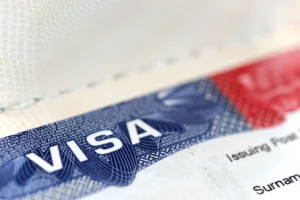Thai Will and Succession. In Thailand, the process of managing one’s estate and ensuring the orderly transfer of assets to heirs involves a combination of legal considerations, cultural norms, and specific procedures. This article provides an insightful guide to Thai wills and succession, exploring the legal framework, key concepts, and practical steps involved in estate planning.
I. Legal Framework for Wills and Succession in Thailand
A. Civil and Commercial Code:
- The primary legal document governing wills and succession in Thailand is the Civil and Commercial Code.
- Specific sections address inheritance, wills, and the distribution of assets upon death.
B. Thai Inheritance Law:
- Thai inheritance laws are influenced by both statutory provisions and traditional customs.
- Understanding these laws is crucial for effective estate planning.
II. Key Concepts in Thai Succession
A. Intestate Succession:
- When an individual passes away without a valid will, Thai law determines the distribution of their assets.
- The intestate succession process follows a hierarchy of heirs, including spouses, children, parents, and siblings.
B. Forced Heirship:
- Thai law imposes forced heirship, meaning certain family members are entitled to a mandatory share of the deceased’s estate.
- This aims to protect the interests of close family members, such as spouses and children.
C. Will-Making Capacity:
- To create a valid will in Thailand, an individual must have the legal capacity to do so.
- Factors such as age, mental competence, and the absence of undue influence are considered.
III. Creating a Valid Will in Thailand
A. 1. Testamentary Capacity:
- The person making the will (testator) must be at least 15 years old and of sound mind.
- It’s essential to establish that the testator fully understands the consequences and implications of their will.
B. 2. Drafting the Will:
- A will in Thailand should be in writing and signed by the testator in the presence of at least two witnesses.
- Witnesses must also sign the will, and their signatures should be verified.
C. 3. Notarization:
- While not mandatory, notarizing a will can provide additional legal weight and simplify the probate process.
- A notary public can confirm the authenticity of the testator’s signature.
D. 4. Language of the Will:
- A will in Thailand can be written in any language, but it’s advisable to provide a Thai translation for legal clarity.
- In case of disputes, the Thai version will prevail.
IV. Estate Planning and Thai Cultural Considerations
A. Joint Ownership:
- Joint ownership of property is a common practice in Thai families.
- Understanding the implications of joint ownership is crucial for effective estate planning.
B. Family Structure and Roles:
- Thai families often have unique structures and cultural dynamics.
- Sensitivity to family relationships and cultural norms is essential in estate planning discussions.
C. Religious Considerations:
- For individuals with strong religious beliefs, incorporating religious rituals or ceremonies into estate planning may be important.
- These considerations can be specified in the will.
V. Probate and Administration of the Estate
A. Probate Process:
- Upon the testator’s death, the will must go through the probate process to be legally recognized.
- The court will verify the validity of the will and oversee the distribution of assets.
B. Executor’s Role:
- The executor, named in the will, is responsible for carrying out the testator’s wishes.
- Their role includes gathering assets, settling debts, and distributing the estate.
VI. Seeking Professional Guidance
A. Legal Advice:
- Engaging a legal professional with expertise in Thai inheritance laws is advisable.
- Legal advice ensures that the will is drafted in accordance with Thai legal requirements.
B. Ongoing Review:
- Estate planning should be a dynamic process that evolves with changes in family structures and assets.
- Regularly reviewing and updating the will ensures its continued relevance.
VII. Conclusion
Navigating Thai wills and succession involves a delicate balance of legal compliance, cultural understanding, and personal preferences. By creating a well-drafted will that aligns with both legal requirements and cultural considerations, individuals can secure their legacies, provide for their loved ones, and ensure a smooth transition of assets in accordance with Thai laws and customs. Engaging legal professionals and having open discussions with family members are key steps in crafting a comprehensive estate plan that reflects individual values and priorities.




